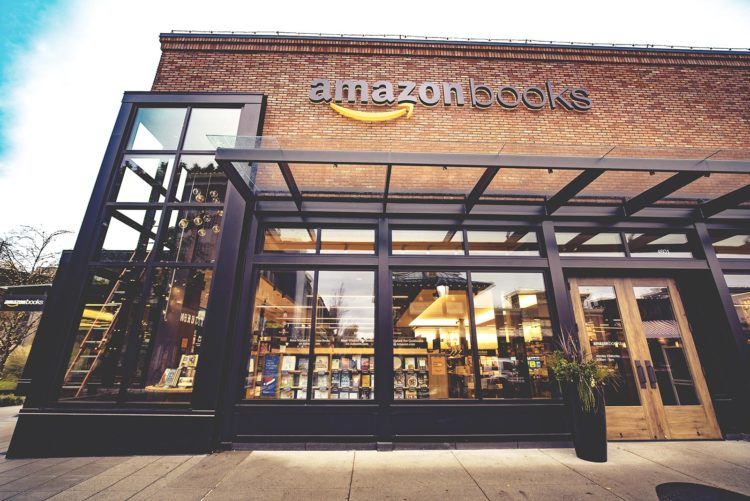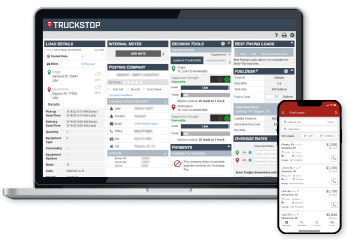There’s a 900-Pound Gorilla in Your Lane

Recent news from Amazon underscores the importance of assessing and protecting your tech-driven advantage
Whether it’s first mile, middle mile, or last mile, Amazon is intent on owning the transportation and logistics market. And it’s making significant progress.
As the world’s largest retailer (more than $100 billion in annual revenue and a market cap nearing $400 billion), Amazon has arguably already earned the trust of a majority of North American consumers. In fact, it has been estimated that more than 40 percent of U.S. households now have Amazon Prime memberships, and this number is projected to top 50 percent within the next three years.
Amid continued rumors of drone delivery and “warehouses in the sky,” Amazon is investing heavily in the critical bricks-and-mortar, transportation assets, and IT infrastructure to command an ever-larger share of the commercial shipping and logistics space. Yet, while tens of thousands of carriers, 3PLs, and brokers are closely watching the hottest battleground — the final mile — Jeff Bezos and company are applying their talents and capital to an even more attractive opportunity: long-haul trucking.
It all makes perfect sense. As Prime membership soars, so do Amazon’s shipping costs, rising nearly 11 percent between Q3 2015 and the same period last year. Continuing the eTailer’s impressive growth, therefore, requires increased control of the transportation life cycle. Recent reports have Amazon testing an Uber-style app designed to match transportation service providers with available shipments, a move clearly targeting 3PLs and brokers. It should be noted that Amazon owns trucking firms in other markets — in France, for example, the company acquired parcel delivery firm Colis Privé. Additionally, the Amazon Flex platform is already solving its last-mile delivery challenges by using independent contractors in select markets.
What does all of this mean for North American transportation service providers? Opinions typically fall into one of two camps: a) Amazon can’t continue to grow without us or b) it’s time to tackle the threat head-on.
It’s true that Amazon has transformed itself from an online bookstore to the world’s most successful eTailer, in part by leveraging the impressive scale and versatility of the transportation industry. But each new piece of news from Seattle seems to point to a shift in strategy toward owning the entire retail supply chain, from “Buy” button to doorbell.
…each new piece of news from Seattle seems to point to a shift in strategy toward owning the entire retail supply chain, from “Buy” button to doorbell.
How can the industry fight back? First, by remembering that customer value is at the core of every good business decision, and that customer value in today’s economy is increasingly being driven by the mastery of information. Relying on yesterday’s technology might enable a carrier, broker and/or 3PL to tread water for a year or two, but shippers will ultimately require their transportation partners to provide increased visibility, flexibility, and cost competitiveness. Rating and routing decisions that today might require hours of deliberation will need to occur in mere seconds. eTailers will demand that TMS solutions be seamlessly integrated into their eCommerce platforms to provide accurate shipping and delivery information at the time of purchase.
These and other demands can and will be met by transportation enterprises that have made the right technology investments at the right times. There are no shortcuts and the risks of trying to bootstrap your way to a lasting solution is simply too great.
Make no mistake, Amazon is in everyone’s face. Success in books and music led to soft goods (auto parts, groceries, industrial supplies, etc.). Not surprisingly, bricks-and-mortar retailers are quickly transitioning to new business models. Amazon is proof positive that the right products at the right prices, backed by a technology-infused consumer experience, make for an awfully compelling value proposition. But the same can be true of your business — as long as you leverage technology to maximize customer value.
Caroline Lyle is vice president of marketing for TMW Systems.
The views, opinions, positions, or strategies expressed by the author and those providing comments are theirs alone and do not necessarily reflect the views, opinions, positions, or strategies of Truckstop.com.
Topics:

Find out how our platform gives you the visibility you need to get more done.
Get helpful content delivered to your inbox.
Schedule a demo.
Find out how our platform gives you the visibility you need to get more done.





